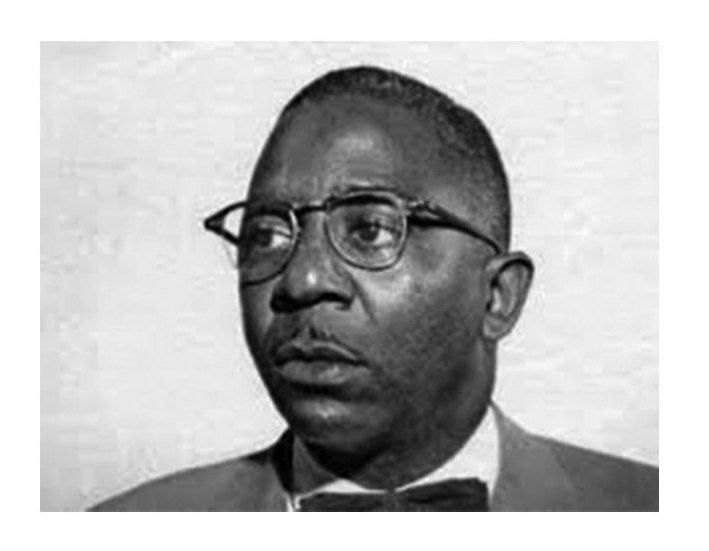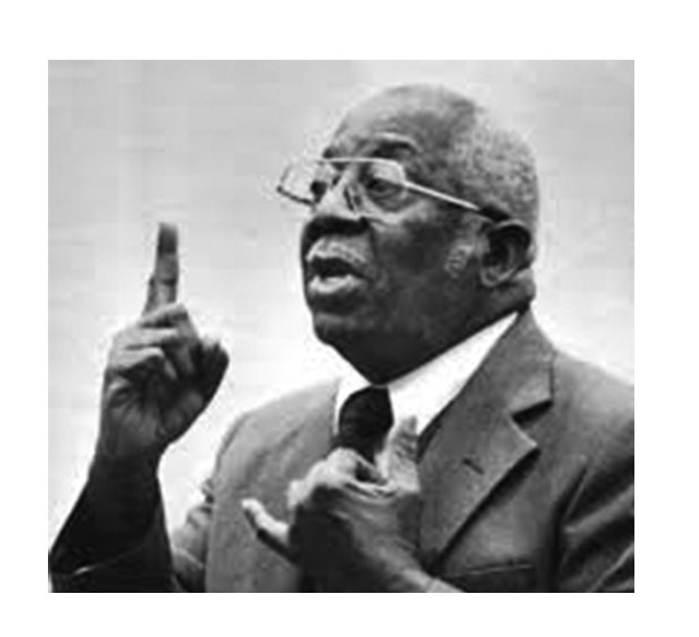
Virgil Hawkins Historical Society Inc
Our Services
Virgil Hawkins Monument
The Virgil Hawkins Integration Monument was first proposed to the University of Florida in 2013 and has been continuously requested by students since then.
Virgil Hawkins
Virgil Darnell Hawkins (November 11, 1906 – February 11, 1988) was an African American attorney who spent many years fighting for integration.
Our Ongoing Struggle
The Virgil Hawkins Integration Monument was first proposed to the University of Florida in 2013 and has been continuously requested by students since then.
Black History Month
Black History Month is the annual celebration of achievements by African Americans. It’s a time to recognize and honor the very central role that African Americans have in the shaping of the United States throughout its history.
Donations
Charitable donations help the Virgil Hawkins Historical Society continue its efforts to preserve and promote the history of Virgil Hawkins. You can also help support us by volunteering.
VIRGIL DARNELL HAWKINS – FLORIDA’S ROSA PARKS
To understand why Virgil Hawkins is a Florida Civil Rights Hero, view the horror of George Floyd’s and Ahmaud Abrery’s deaths and imagine living a decade of your life knowing law enforcement and Klan operatives sought to bring your life to an end in that manner. That’s the unending life crisis Virgil Hawkins endured from 1949 – 1958. Yet if you Google Virgil Hawkins you will be directed to a cartoon superhero known as “Static Shock”, for whom Virgil Hawkins was the name of his Clark Kent-style alter ego. The creator of Static Shock chose that name to honor the real Virgil Hawkins, but for fans of the series, the hero’s connection to a real civil rights hero remains unknown.
During the decade of terror inflicted upon him, Virgil .Hawkins knew he was a person identified and marked for death by law enforcement, Klan and White Citizens Councils. Long before an I-phone could record these types of murders, Hawkins had witnessed the torture and lynching of others when he was a young child, He knew that was his likely fate, not for committing a crime, but solely because he was the lone plaintiff in a lawsuit to gain the right of black taxpaying-Floridians to attend the taxpayer-funded University of Florida. To appreciate Virgil Hawkins’ efforts, imagine that with no money, power or influence, you refused to cower in fear or withdraw your demand for equal rights, but after a decade of living each moment as your last on earth and watching age snatch away your prospects for the career you had sought since you were six years old, your attorneys requested that you agree to a court settlement where you lost your court-ordered right to attend the University of Florida in exchange for an order that prohibited Florida from limiting UF admission “to white persons only”. Could you do this? Would you do what Virgil Hawkins did to open the doors of education to students their teachers and fellow students would refer to (when being semi-polite) as “colored”. If you began the fight in the company of others, only to have them leave the field of battle after a bomb killed Florida’s leading civil rights leader, would you remain the last man holding the hill until an impossible victory became possible?
It was this Civil Rights legacy that led Ebony Magazine to award Virgil Darnell Hawkins’ the title of “The South’s Most Patient Man” in the October 1958 written by Lerone Bennett. The title was well deserved because the 1950’s was not a time when you could attend a protest rally, take a selfie, post it to Facebook and resume your life and livelihood. Like a similar lawsuit plaintiff one state away named Rosa Parks, Virgil Hawkins was a poor man, the son of field workers who lacked the power or prominence to compel the legislature or the courts of Florida to bend to his will. Like Rosa, his refusal to back off despite the threats to the lives of his family and himself and demands that his employer fire him inspired other Floridians to begin the Florida civil rights battles that those inspired by Rosa fought for in other states.
Like Rosa, his victory led him to give up his life in the state of his birth and try to find opportunities in Northern states far from the Southern renewal of the Civil War. Unlike Rosa, Hawkins never had a Congressman John Conyers who offered Parks employment opportunities for the remainder of her life as one way to say to this hero: “Thank You”. Unlike Rosa, after unsuccessful efforts to create a new life “up North ”, Hawkins returned to Florida where the powerful men whom Hawkins had brought to their knees could resume their efforts to destroy the final years of his life. As a result, unlike Rosa Parks, Hawkins died in poverty and disgrace on February 11, 1988 and only an unprecedented court proceeding after Hawkins death, filed by our founder, would begin to restore Hawkins’ reputation and legacy. Thus despite national publicity in the 1950’s Virgil Hawkins remains a largely unknown hero of America’s Civil Rights history. The denial of his right to equal education made Hawkins a poster child for the slogan: “A mind is a terrible thing to waste”.
Despite the efforts to destroy him, Hawkins remained unbroken and confident that children unborn during his lifetime would become the leaders of civil rights efforts and to continue the fight he began over seven decades ago. His wisdom and insight was demonstrated by his statement in 1976, on the 200th anniversary of the United States: “We still have a long way to go”. He knew then as we know now that he had won a battle, but the war continues without its final victory.
The Virgil Hawkins Historical Society is dedicated to expanding the world’s knowledge of this Civil Rights hero in the hope he will inspire others to continue the fight required today and in the future. In 1983, Hawkins spoke to the Florida Supreme Court about the dreams they had stolen from him and his hope to cling to a remnant of his lifetime goal: “When I get to heaven, I want to be a member of the Florida Bar.” We know that from the place in heaven where he debates Civil Rights issues with his attorney, Thurgood Marshall, Virgil looks down with pride at this and future generations of civil rights soldiers, knowing that one day his elusive victory for social justice will be won and hoping his example will inspire many to have the courage and persistence needed to make this victory a reality.

Virgil Hawkins Historical Society Inc
Click to view 15 minute version of “A Lawyer Made in Heaven”
Who Was Virgil Darnell Hawkins?
Virgil Darnell Hawkins’ journey to his fight for desegregating Florida’s universities began in the rural racist town of Okahumpka, Florida. The grandson of slaves from a South Carolina plantation, whose grandfather received a deed from President Grant for 80 acres in Florida after the Civil War, Hawkins was born in 1906. At age 6, Virgil entered a courtroom with his father and saw many local black men sentenced for minor charges, to six-month sentences, so local growers could obtain a supply of slave labor. Hawkins left the courthouse with his life’s mission to become an attorney to save similar men from imprisonment. Hawkins faced a long route to that goal because Florida’s separate but unequal education did not afford Negroes a high school degree and Florida law schools only admitted white students.
His shot at a degree from UF’s law school became possible after World War II when the NAACP recruited 6 black volunteers to apply to UF in 1949, when Hawkins worked at Bethune Cookman College. When rejected by UF due to race, Hawkins and 4 other applicants became the plaintiffs in lawsuits where the Florida Supreme Court ruled Hawkins and the others were qualified for admission, but could not be admitted due to his race. Hawkins became the sole plaintiff when all the others withdrew after NAACP leader, Harry T. Moore was assassinated on Christmas 1951, when a bomb blew up under the bed where Moore and his wife slept.
Expecting Hawkins to flee when Klan and law enforcement sought to kill Hawkins and his family, Hawkins fought on until the U.S. Supreme Court ruled in a 1954 companion case to Brown that Hawkins was entitled to immediate admission, Florida illegally defied the US Supreme Court for 4 more years until it entered into a consent decree in 1958, where Hawkins withdrew his application in exchange for an Order admitting other “qualified Negroes” to UF. Following his efforts, Ebony Magazine dubbed Hawkins “The South’s Most Patient Man”. Undeterred, Hawkins earned a law degree outside Florida in 1964, but Florida refused to admit Hawkins until 1977, when at age 70, they entered a special Order allowing him to practice as a Florida lawyer. Although serving hundreds of clients for six years, scrutiny of his law practice by those who resented his civil right triumph, forced his resignation from the Florida Bar in 1985, following a desperate 1983 plea to save his career by telling the same Florida Supreme Court who illegally denied his admission to UF: “When I get to heaven, I want to be a member of the Florida Bar.” That plea remained unheard until eight months after his February 1988 death, when the Court granted the petition filed by our founder, Harley Herman, to posthumously reinstate Hawkins to membership in good standing to the Florida Bar. .(In re Virgil Darnell Hawkins, 532 So.2d 669, 1988) Today, the Florida Association of Black Lawyers is named after Mr. Hawkins.


Since 1979, a law has mandated that the UF law clinic where law students represent poor clients that Virgil Hawkins sought to represent since age six, is named for Mr. Hawkins and pleadings filed on behalf of those clients bear his name. In 2021, UF erected a historic marker at Bryan Hall, where the first black student was admitted, to recognize the efforts of Hawkins and UF’s first black students.
